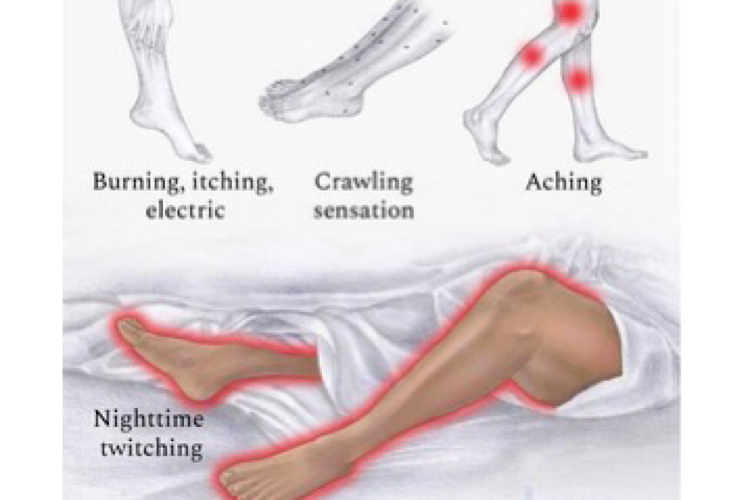
An international team of scientists has found genetic clues that can lead to new treatment for restless leg syndrome, a condition common among older adults.
People with restless leg syndrome face an unpleasant crawling sensation in the legs and an overwhelming urge to move them, especially during the evening or at night time. It can severely impair sleep and also cause depression or anxiety, cardiovascular disorders, hypertension, and diabetes.
While the reason remains unknown, researchers from the University of Munich (TUM) in Germany and the University of Cambridge pooled and analysed data from three genome-wide association studies with more than 100,000 patients and over 1.5 million unaffected controls.
The results, published in the journal Nature Genetics, identified over 140 new genetic risk loci, increasing the number known eightfold to 164, including three on the X chromosome.
The team identified no strong genetic differences between men and women. This is despite the condition being twice as common in women as it is in men, said the team.
Dr Steven Bell from the University of Cambridge noted that “understanding the genetic basis of restless leg syndrome” can help find “better ways to manage and treat it, potentially improving the lives of many millions of people affected worldwide”. Of the genetic differences, two involve genes known as glutamate receptors 1 and 4 respectively — important for nerve and brain function. The team said that they could potentially be targeted by existing drugs, such as anticonvulsants like perampanel and lamotrigine, or used to develop new drugs.
Early trials have already shown positive responses to these drugs in patients with restless leg syndrome, they noted.
 Weekly Bangla Mirror | Bangla Mirror, Bangladeshi news in UK, bangla mirror news
Weekly Bangla Mirror | Bangla Mirror, Bangladeshi news in UK, bangla mirror news







